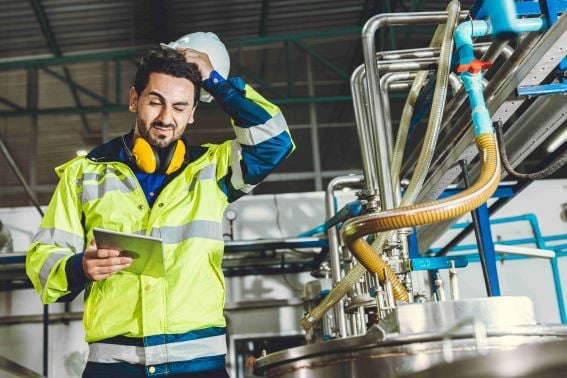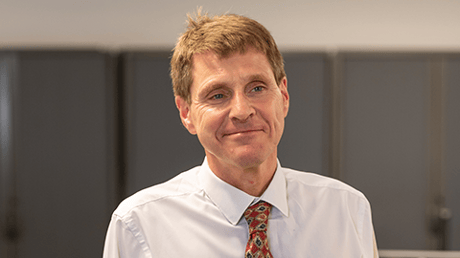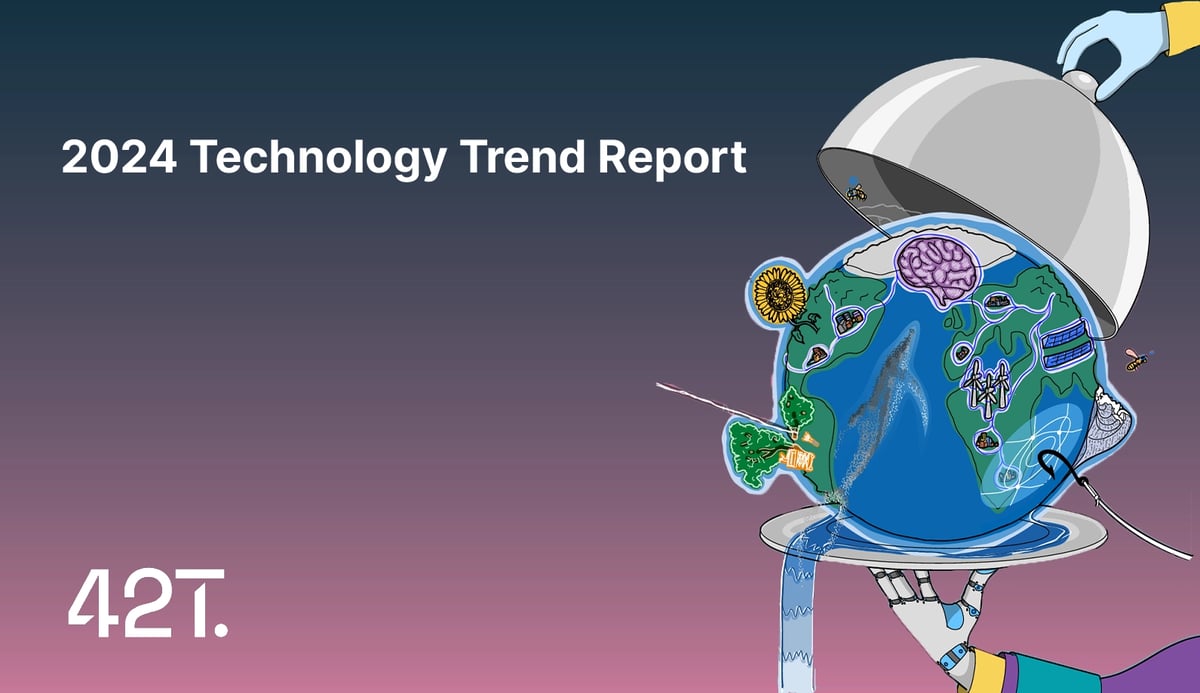
Key takeaways from an engineering modelling and simulation event
February 2024
By David Griffin, Principal Consultant, Manufacturing Innovation & Automation at 42T
Here are some of the key trends that our expert, David Griffin, gathered from attendance at an engineering event called 'Harnessing the Power of Modelling & Simulation in the Food & Drinks Industry'. Read about this and other trends in our Trend Report below.
I attended the NAFEMS 'Harnessing the Power of Modelling & Simulation in the Food & Drinks Industry' meeting featuring demos, case studies and panel discussions, hosted at the Mondelez facility in Bourneville.
It was a packed day featuring demos, case studies and panel discussions and it was a chance to get a glimpse of some of the advanced modelling work being carried out. In fact, it turned out to be a real eye-opener regarding the bigger picture beyond the usual compelling technical demonstrations.
Major industry challenges
One clear takeaway from the meeting is that modelling of food processing is one of the most challenging possible areas, given the non-linear properties of the media and its propensity for changing properties significantly during the transformation being modelled. As one presenter joked, "This is nowhere near as easy as rocket science!"
There was also a good insight into the challenges of adopting a modelling capability in a large organisation, both in terms of long-term commitment, but also in terms of education and expectation management.
.webp?width=1000&height=563&name=shutterstock_2301475857%20(1).webp)
It's clear that just giving an engineer a simulation tool doesn't make them an expert modeller any more than giving them a CAD system makes them a mechanical designer, but even having deep modelling expertise in-house won't generate value if people in the wider organisation don't know what problems can be solved with it. And let's not be under any illusion here - it takes vision and significant commitment over many years to build this sort of expertise and critical mass in-house before genuine commercial payback is generated.
Promising modelling research
It was good to end the day with a glimpse of the state-of-the-art of modelling research where the developers of the tools of tomorrow are working to build multi-physics tools that actually exhibit convergent solving.
Of course, high-fidelity multi-physics modelling needs to be seen in context, as just one of a broad suite of tools. Practical testing still has its place (both for getting original answers and to validate computer models).
%20(1).webp?width=1075&height=645&name=shutterstock_2163864543%20(1)%20(1).webp)
And in large, complex processes that can never realistically be the subject of multi-physics simulations, there are 'black box' data analysis approaches that can identify relationships between driving parameters and product output which can then be usefully used to predict and optimise outcomes, even if the underlying causes are never fully understood. Machine learning has made such approaches especially powerful.
And there's a place in all these situations for pragmatism. Sometimes it's not necessary to know the exact answer, just whether or not it lies within certain bounds, and there can be high commercial value in getting a good-enough answer soon (versus a perfect answer in 6 months' time).

In these cases, the skill lies in figuring out the minimum analysis or physical test that would give a 'good enough' result and having a way to correctly evaluate the risk that the approach won't give a representative answer.
For this, the engineer has to have a deep understanding of the domain being studied, as well as a good understanding of the technical (and commercial) context.
What we do
42T has established a strong reputation for partnering with clients to solve complex technical problems and develop brilliantly successful products.
We are a product design and innovation consultancy, based near Cambridge (UK) that helps to create innovative new products and manufacturing processes for some of the world’s best-known brands, as well as start-ups and SMEs. We work across three key sectors: consumer, industrial, and healthcare & life sciences.
The team comprises engineers, scientists and designers, and offers a diverse range of skillsets that includes ethnographic research and usability engineering, product and system design, device testing and regulatory compliance.

If you would like to find out more, please contact David:
answers@42T.com | +44 (0)1480 302700 | David Griffin | LinkedIn
David is a Senior Consultant at 42 Technology and is an industry experienced mechanical engineer. He has spent a decade developing bespoke test and assembly automation in diverse fields ranging from motor winding to asthma inhaler manufacture. Also, several years developing and optimising solvent removal technology and continuous chemistry systems. He also spent a period in industrial inkjet printing system development.
Our Technology Trend report can be downloaded free from here.
Was this trend article useful? Have a challenge of your own?
Email answers@42technology.com or give us a call on +44 (0)1480 302700.
Read our case studies.
Share this article:
Related Articles

Manufacturing & Automation, Industrial
How to bring sensing in manufacturing out of the lab and onto the line

Manufacturing & Automation
Digitalisation in manufacturing - building on the foundations of good data

Manufacturing & Automation
Food & beverage industry - trends to be aware of in 2024

What will you ask us today?
We believe in asking the right questions to drive innovation; when we know the right questions, we generate the ideas to answer them.


